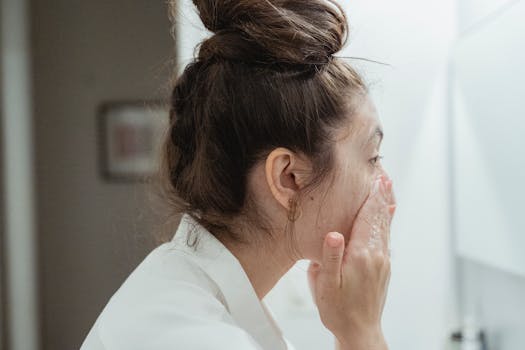Genital Skin Conditions in Psoriasis: Specialized Treatment Options
Psoriasis is often thought of as a skin condition that affects areas like the elbows, knees, or scalp. But for those dealing with genital psoriasis, the experience can be uniquely challenging. The sensitive nature of the skin in this region, coupled with the emotional and physical discomfort it can bring, makes finding the right treatment all the more important.

Understanding Genital Psoriasis
Genital psoriasis is a subtype of psoriasis that specifically affects the groin, genitals, upper thighs, and buttocks. Unlike other forms of psoriasis, the lesions here appear as smooth, shiny patches without the thick scales typically associated with the condition. This happens because the skin in these areas is thinner and more sensitive.
Now imagine trying to manage a condition like this in a region prone to friction, heat, and moisture. Activities as simple as walking or wearing snug clothing can aggravate symptoms, making daily life uncomfortable. Many people also feel a stigma attached to this condition due to its location, which may prevent them from seeking medical advice early on. Yet, it's worth noting that about 30-63% of people with psoriasis experience genital involvement at some point, according to studies published by dermatology experts (NCBI).
Common Symptoms and Triggers
The symptoms of genital psoriasis can vary slightly depending on its specific location:
- In the groin area: Smooth red patches that may itch or cause discomfort.
- Around the genitals: Shiny lesions that may feel sore rather than itchy.
- On buttocks or upper thighs: Patches resembling classic psoriasis plaques but appearing less scaly.
Triggers for genital psoriasis often overlap with those of other types of psoriasis but may also include unique factors such as sweating, chafing from tight clothing, and certain hygiene products. Even well-intentioned habits like using scented soaps can worsen irritation. Stress levels and immune system triggers like infections can also play a significant role in flare-ups.
Treatment Options: Tailored for Sensitivity
Treating genital psoriasis requires a delicate approach due to the area’s vulnerability to irritation. While many treatments for other types of psoriasis exist, not all are suitable for sensitive skin regions. Here are some specialized treatment options:
- Topical Steroids: Low-potency corticosteroids are often prescribed as a first-line treatment. These creams help reduce inflammation and itching but must be used cautiously to avoid thinning of the already delicate skin in this area.
- Calcineurin Inhibitors: Medications like tacrolimus or pimecrolimus offer an alternative to steroids. They work by calming inflammation without carrying the same risk of thinning skin. These are particularly useful for long-term management.
- Moisturizers: Using fragrance-free emollients regularly can keep the skin hydrated and reduce irritation caused by dryness.
- Phototherapy: While UV light therapy is effective for many psoriasis patients, applying it to genital areas requires caution due to the risk of burns or sensitivity issues. It’s typically reserved for cases where other treatments haven’t worked.
- Systemic Medications: For severe cases that don’t respond to topical treatments alone, systemic drugs like biologics (e.g., adalimumab or secukinumab) may be an option. These target specific parts of the immune system responsible for triggering psoriasis.
Your dermatologist will tailor your treatment plan based on your specific symptoms, overall health, and lifestyle factors.
Everyday Tips for Managing Genital Psoriasis
Treatments work best when combined with everyday practices aimed at minimizing irritation and keeping flare-ups at bay. Here are some tips to incorporate into your routine:
- Avoid tight clothing: Opt for loose-fitting cotton underwear and breathable fabrics that reduce friction and moisture buildup.
- Select gentle hygiene products: Stick to unscented soaps or cleansers labeled as suitable for sensitive skin.
- Bathe wisely: Use lukewarm water instead of hot water while bathing, as heat can worsen inflammation. Pat yourself dry gently rather than rubbing your skin with a towel.
- Stay mindful of triggers: Pay attention to what exacerbates your symptoms (whether it’s certain foods, stressors, or environmental factors) and try to avoid these where possible.
An example worth mentioning involves exercise. While staying active is important for overall health, sweat from intense workouts can irritate genital skin if not managed properly. Wearing moisture-wicking clothes during exercise and showering immediately afterward can help mitigate these effects.
The Emotional Side: Support Matters Too
The psychological impact of genital psoriasis is often underestimated. Concerns about intimacy and body image are common among those affected. If you’re experiencing emotional distress related to your condition, know that you’re not alone and there are resources available to help.
Cognitive behavioral therapy (CBT) has shown promise in helping individuals cope with conditions like psoriasis-related anxiety or depression (NCBI). Connecting with others through support groups (either locally or online) can provide a sense of community and understanding that eases feelings of isolation.
A Collaborative Approach Yields Results
If you’re managing genital psoriasis (or suspect you might have it) the first step is reaching out to a dermatologist who understands its nuances. Open communication is key; don’t hesitate to discuss how it’s impacting your quality of life so they can recommend treatments that address both physical symptoms and emotional well-being.
No two cases of psoriasis are exactly alike; what works wonders for one person may need adjustments for another. But through tailored care plans and lifestyle modifications (and perhaps even some trial-and-error) you’ll find an approach that works best for you. Remember: managing this condition isn’t just about applying creams or medications; it’s about feeling empowered in your skin again.
